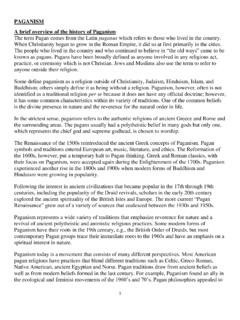Transcription of PEDAGOGY of the OPPRESSED
1 PAULO FREIRE PEDAGOGY of the OPPRESSED ; 30TH ANNIVERSARY EDITION Translated by Myra Bergman Ramos With an Introduction by Donaldo Macedo A continuum IfNEW YORK LONDON 2005 The Continuum International Publishing Group Inc 15 East 26,h Street, New York, NY 10010 The Continuum International Publishing Group Ltd The Tower Building, 11 York Road, London SE1 7NX Copyright 1970, 1993 by Paulo Freire Introduction 2000 by Donaldo Macedo All rights reserved. No part of this book may be reproduced, stored in a retrieval system, or transmitted, in any form or by any means, electronic, mechanical, photocopying, recording, or otherwise, without the written permission of The Continuum International Publishing Group Inc.
2 Printed in the United States of America Library of Congress Cataloging-in-Publication Data Freire, Paulo, 1921-[Pedagogia del oprimido. English] PEDAGOGY of the OPPRESSED / Paulo Freire ; translated by Myra Bergman Ramos ; introduction by Donaldo Macedo. 30th anniversary ed. p. cm. Includes bibliographical references. ISBN 0-8264-1276-9 (alk. paper) 1. Freire, Paulo, 1921- 2. Education Philosophy. 3. Popular education Philosophy. 4. Critical PEDAGOGY . I. Title. P4313 2000 *5 dc21 00-030304 To the OPPRESSED .
3 And to those who suffer with them and fight at their side Contents Publisher's Foreword 9 Introduction to the Anniversary Edition by DONALDO MACEDO 11 Foreword by RICHARD SHAULL 29 Preface ^ 35 Chapter 1 43 The justification for a PEDAGOGY of the OPPRESSED ; the contradiction between the oppressors and the OPPRESSED , and how it is overcome; oppression and the oppressors; oppression and the OPPRESSED ; liberation: not a gift, not a self-achievement, but a mutual process.
4 Chapter 2 71 The "banking" concept of education as an instrument of oppression its presuppositions a critique; the problem-posing concept of education as an instrument for liberation -its presuppositions; the "banking" concept and the teacher-student contradiction; the problem-posing concept and the supersedence of the teacher-student contradiction; education: a mutual process, world-mediated; people as uncompleted beings, conscious of their incompletion, and their attempt to be more fully human.
5 8 CONTENTS Chapter 3 87 Dialogics the essence of education as the practice of freedom; dialogics and dialogue; dialogue and the search for program content; the human-world relationship, "generative themes," and the program content of education as the practice of freedom; the investigation of "generative themes" and its methodology; the awakening of critical consciousness through the investigation of "generative themes"; the various stages of the investigation.
6 Chapter 4 125 Antidialogics and dialogics as matrices of opposing theories of cultural action: the former as an instrument of oppression and the latter as an instrument of liberation; the theory of antidialogical action and its characteristics: conquest, divide and rule, manipulation, and cultural invasion; the theory of dialogical action and its characteristics: cooperation, unity, organization, and cultural synthesis.
7 Publisher's Foreword This is the thirtieth anniversary of the publication in the United States of PEDAGOGY of the OPPRESSED . Since the original publication, this rev-olutionary work has gone into more than a score of printings and sold over 750,000 copies worldwide. In his foreword to the first edition, which is included in this one, Richard Shaull wrote: In this country, we are gradually becoming aware of the work of Paulo Freire, but thus^far we have thought of it primarily in terms of its contribution to the education of illiterate adults in the Third World.
8 If, however, we take a close look, we may discover that his methodology as well as his educational philosophy are as im-portant for us as for the dispossessed in Latin For this reason, I consider the publication of PEDAGOGY of the Op-pressed in an English edition to be something of an event. These words have proved prophetic. Freire's books have since taken on a considerable relevance for educators in our own technologically advanced society, which to our detriment acts to program the indi-vidual especially the disadvantaged to a rigid conformity.
9 A new underclass has been created, and it is everyone's responsibility to react thoughtfully and positively to the situation. This is the underlying message of PEDAGOGY of the OPPRESSED . As times change so do attitudes and beliefs. The translation has been modified and the volume has been newly typeset to reflect the connection between liberation and inclusive language. An impor-tant introduction by Donaldo Macedo has been added. This revised thirtieth-anniversary edition of PEDAGOGY of the Op-pressed thus represents a fresh expression of a work that will continue to stimulate and shape the thought of educators and citizens everywhere.
10 Introduction Never in my wildest dreams would I have imagined when I first read PEDAGOGY of the OPPRESSED in 1971 that, a decade later, I would be engaged in a very close collaboration with its author, Paulo Freire a collaboration that lasted sixteen years until his untimely death on May 2, 1997. Never in my wildest dreams would I have thought that, today, I would have the honor to write an introduction to commem-orate the thirtieth anniversary of the publication of PEDAGOGY of the OPPRESSED , a book that according to Stanley Aronowitz, "meets the single criterion of a 'classic' " in that "it has outlived its own time and its authors.







